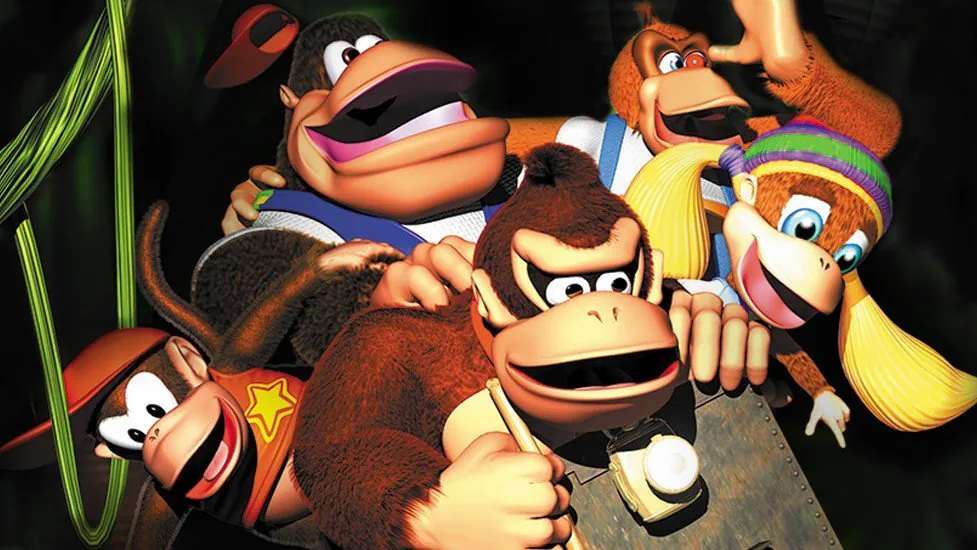Best Of
Microsoft’s Monopoly: 5 Biggest Acquisitions of All Time

With Microsoft on the prowl for new studios to employ into its gaming network, pressure is beginning to hear up all over the industry, with the likes of Sony now on tenterhooks over which faction will be claimed next. Making some of the biggest financial moves in the history of gaming, it's clear Microsoft isn't messing about, and that its goal is to dominate the entire board and collect an army of pawns along the way.
With the latest acquisition of Activision Blizzard swiftly maneuvering closer to its induction phase, it gives us chance to compare it to Microsoft's other lavish endeavours that have captured the eyes of every gamer and stakeholder in the business. The question is, next to the most recent addition to the family tree, what other factions have cost Microsoft an arm and a leg to acquire?
5. Ensemble Studios ($100m)

Microsoft made a move back in 2001 to claim the American handle Ensemble Studios for its own, chipping in an impressive $100m for all its assets. Ensemble Studios, which unfortunately disbanded in 2009 after running with the frontrunners in the industry for the best part of fifteen years, was famous for brands such as Age of Empires and Halo Wars, with the former being the bread and butter of the faction.
As popular as the Age of Empires series was during its time on the market, Ensemble Studios eventually shut its doors in 2009, eight years after Microsoft employed the team into its ranks. Due to the team having a strict diet of real-time strategy games and Microsoft's goals lingering elsewhere, the two sides eventually hit a wall, effectively slamming the final nail in the coffin for the joint venture. Ensemble Studios could have been repurchased by original founder Tony Goodman, but he unfortunately declined and planted roots elsewhere.
4. Rare ($375m)

Rare was one of Nintendo's biggest pawns during the early nineties, with games like Conker's Bad Fur Day, GoldenEye 007, Donkey Kong, as well as Banjo-Kazooie adding to the nexus of top-shelf titles that the platform produced. Following on from Microsoft's $375m takeover in 2002, the guys over at Rare worked on top priority games for their newfound parent company, including Viva Piñata and Kinect Sports.
Although the company has since settled for quality over quantity, with Sea of Thieves being one of the most catered to entries in the portfolio to date, the studio still remains a valuable asset to Microsoft. As for the future of the division, well, you can expect to see the rebooted Everwild grace consoles sometime in 2023. Until then, you'll have to settle for Battletoads, I'm afraid.
3. Mojang ($2.5bn)

Ah yes, Mojang. Chances are, you've heard your fair share of news about the Swedish developer that brought the universally acclaimed Minecraft platform to the world. Being one of the biggest and most successful games on the planet, it would be more of a surprise if you hadn't pledged a great deal of time to its updates and spin-offs since day one. One thing was for sure: Microsoft certainly had a keen eye for it.
By the time Microsoft swept in to acquire Mojang and its dearly beloved child, Minecraft, in 2014, the sandbox game was pulling in just shy of 54 million users, making it one of the largest platforms in the industry. Today, the game remains glued to the apex of the business, and Microsoft has the privelidge of pulling all the strings in its favor whenever it pleases. Talk about power.
2. ZeniMax Media ($8.1bn)

Microsoft has often resorted to flashing its mounds of spare cash for the sake of tapping into just one valuable asset. ZeniMax Media, known for its long chain of subsidiary studios, including Bethesda Softworks, id Software, and Arkane Studios, was snagged just last year by Microsoft for a whopping $8.1bn. Since then, the popular handle has gone on to publish multiple best-sellers, with Microsoft raking in the lion's share of each take.
Prior to Microsoft tapping into its most recent conquest, the ZeniMax Media deal was considered to be one of the boldest chapters in the history of gaming. With series like The Elder Scrolls becoming another part of Microsoft's network, it wasn't long before rival companies began to fear the warlord of gaming as it swiftly crept across the board, merging all opportunities in its path.
1. Activision Blizzard ($68.7bn)

Of course, it's Activision Blizzard, the most recent and most ambitious takeover to date. With just shy of $70bn on the line, the acquisition marks the biggest ever seen in the gaming world. With Call of Duty, World of Warcraft, and a whole bunch of other highly praised works falling into Microsoft's arms, it means the brand is one step closer to complete control over the monopoly. Come 2023, and both divisions will report to Microsoft, giving them full access and the keys to all IPs.
Luckily for PlayStation users, games like Call of Duty will continue to be available on multiple platforms. However, that isn't to say thing won't change. Chances are, Microsoft will pull a few strings and have the new merger produce Xbox exclusives. I suppose, for nearly $70bn, you'd half expect a few exclusive gems in return. Either way, there's no denying the fact that Microsoft's swipe at Activision Blizzard was one of the biggest in recorded history. But what's next? Well, only time will tell. We for one can't wait to see what Microsoft employs in the near future.
So, what do you make of Microsoft sweeping the board clean? Which faction do you think the company will target next? Let us know over on our socials here or down in the comments below.











